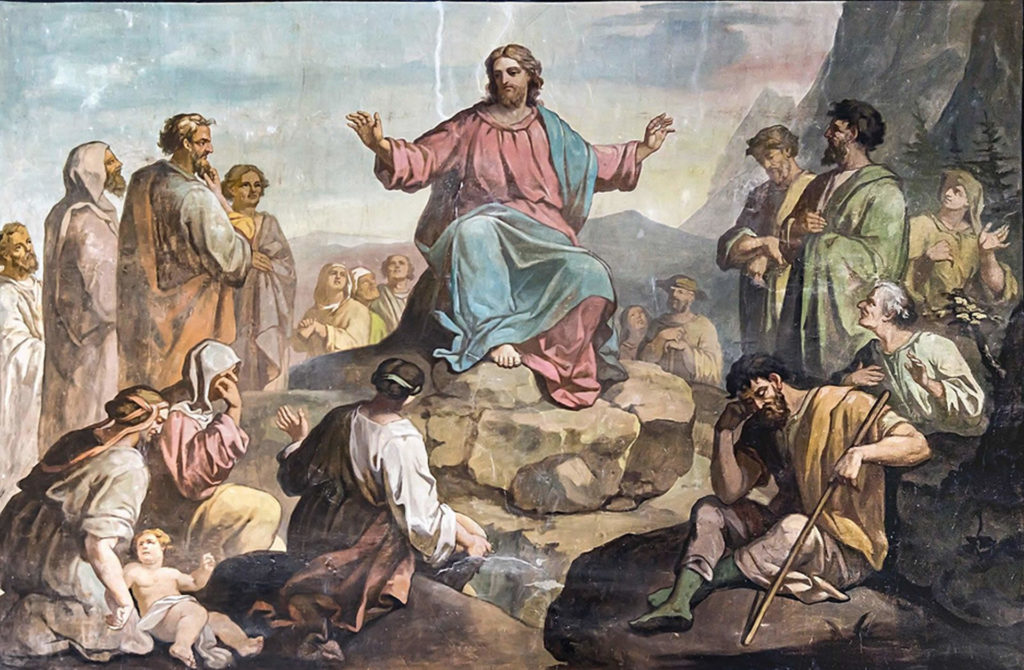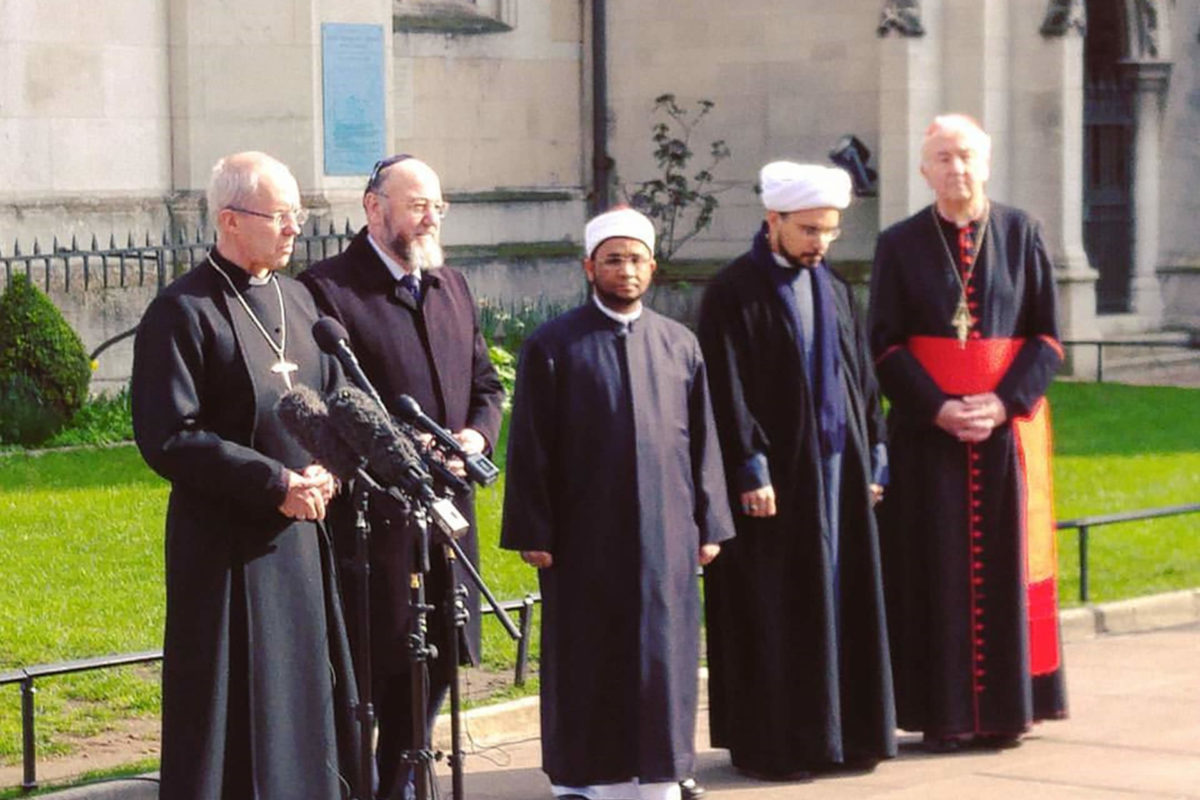Religious correspondents are, at the beginning of the 21st century, closer to a dignified than an efficient part of the media constitution. Worthy ecumenical and inter-faith events and the occasional state event are their bread and butter, but this November, unusually, they have earned their crusts in the limelight.
Two things occurred which attracted their attention; two occasions which were in most ways unconnected except by the identity of the main actors. On 7th November, Lord Sacks, the former chief rabbi, died of cancer, having only announced the previous month that he was (for the third time) suffering from the disease. Two weeks later, on 21st November, Lambeth Palace declared that the archbishop of Canterbury, Justin Welby, would take a three-month sabbatical next summer for “reflection, prayer, and spiritual renewal”.
On the face of it, this shouldn’t have been a contest in terms of column inches. Archbishop Justin is the senior cleric of the Church of England, one of the UK’s established churches, and head of the Anglican Communion, which counts 85 million members across the globe. Lord Sacks has previously been the chief rabbi of the United Hebrew Congregations of the Commonwealth, around 40,000 strong, and had retired from that post in 2013. Both, of course, were members of the House of Lords, but it is clear where the big battalions were.
To use a crude but modern metric — St Paul would surely have tweeted to the Ephesians if he could — Sacks had only 800 followers on Twitter, while Welby’s thoughts are seen by 150,000. The archbishop of Canterbury is hardwired into the great rituals of the United Kingdom, while the chief rabbi has a walk-on part at the Cenotaph each November, but few other “official” platforms.
This imbalance would not have been obvious to a neutral observer. Lord Sacks’ relatively early death (he was 72) was accompanied by glowing tributes to a man held in enormous esteem by commentators of all faiths and none: Vincent Cardinal Nichols, the head of the Catholic Church in England and Wales, called Sacks “a most eloquent proponent of some of the greatest truths of humanity, so often forgotten”, while Mohit Bakaya, controller of BBC Radio 4, for which Sacks often broadcast, described him as a “man of great intellect, humanity and warmth”.
Welby, by contrast, has had a difficult year. His seemingly enthusiastic compliance with the UK government’s public restrictions due to the Covid pandemic, including banning his clergy from entering their own churches, has been sharply criticised by many within the Church of England. Some felt that he had failed to provide moral leadership in troubled times. So his decision to absent himself from his duties for three months next year, while hardly unprecedented for a primate, was greeted as inconsequential by some, and with a weary eye-roll by others. The conservative Catholic writer Tim Stanley said “this does not look good”, adding, rather acidly, that he hoped Welby would return in September 2021 “with a fresh sense of zeal”.

Of course it is in some ways unfair to compare the two religious leaders. Jonathan Sacks was a graduate of Cambridge, Oxford and King’s College London, a deeply scholarly man with more than 30 learned books to his name. He was chief rabbi for more than 20 years, and was a persuasive and powerful speaker, with a deep, rich voice which comforted the soul as much as it challenged the intellect.
Justin Welby, though well connected and educated at Eton and Cambridge (where he read History & Law), served Mammon as an oil industry executive for more than a decade before he was accepted for ordination. His path to faith was not a straight nor smooth one, and he did not become a priest until 2003. He has penned a few volumes, writing mainly on the interaction of faith and capitalism, and his oratory is pedestrian, flat, managerial.
Notwithstanding, we are presented with a conundrum: the middle-class London Jew who led a small and beleaguered community managed to reach far beyond its limits to speak ethical truths which resonated with a huge audience, while the well-to-do Anglican, at the head of a worldwide organisation and buttressed by the state, carries little moral authority in today’s Britain, more often ignored than he is even chastised or reviled. Sacks, the product of an inward-looking bookish tradition which actively shuns evangelism, made himself heard much more clearly and with greater authority than the worldly and experienced businessman with fluent French and a good, and given, grasp of the media.
There is no doubt that our religious and spiritual identity as a nation is becoming more fragmented. The last census found 59% of the population of England and Wales identified as Christian, though the number of active communicants is much smaller. A quarter of the people said they had no religious affiliation, though, again, far fewer are convinced atheists. The largest minority religious group was Islam (5%), while, as mentioned above, the Jewish community is extraordinarily small – around 0.5% (and Lord Sacks was head of only the orthodox part of that).
Finding faith
That headline figure, however, of three-quarters of England and Wales identifying with a religious faith, may be the key. We are still, overwhelmingly, a country with an appetite for spirituality in some form, for believing in a higher power and some form of life after death. We are willing to reconcile modern science and rational inquiry with something more numinous and ethereal, able, perhaps positively eager, to accept that we know only a little of the way the universe works, and that our ignorance is much greater than our comprehension. Above all, we are willing to look for religious, but also ethical and moral, leadership.
Lord Sacks understood that, and, steeped in the traditions of Judaism — learning, analysis, inquiry, reconciliation — he sought to take his own code of morality to anyone who would listen. From Thought for the Day on Radio 4 and his regular contributions to the ‘Credo’ column of The Times to his ecumenical books like The Dignity of Difference and To Heal A Fractured World, he tried to fill the void that he perceived, the appetite that the 2011 census demonstrated.
Archbishop Justin’s approach to our spiritual doors has not been as successful. He is beset by contemporary dilemmas, such as the ethics of the arms trade and the morality of WMDs, and the place of women in the church (the third most senior prelate, the bishop of London, is now a woman). He falls too easily into the trap of trying to please all sides, to keep the Church of England relevant while rejecting dogmatic positions which might put off ‘floating congregants’. Perhaps inevitably, under the circumstances, he can look like a man caught between The Bible and the day’s Guardian editorial.
There are lessons here. Lessons about authenticity, about presentation, about ambition and about realism. It is certainly fair to say that Lord Sacks’ successor, Rabbi Ephraim Mirvis, has not established himself significantly in the public consciousness, and that Anglicans looking for more clear-cut and doctrinal leadership have looked past Archbishop Justin to the charismatic archbishop of York, Dr John Sentamu, who stepped down this summer. But it is worth reflecting on how it came to be that the stronger voice has often seemed to be coming from much the smaller tradition. If the messaging is right, there is an audience. The devil, as ever, is in the detail.

